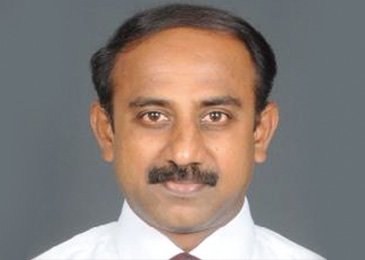Going the green way - <I>Dr Senthil Chinnasamy</I>
February 14, 2013 | Thursday | Features | By Rahul Koul Koul
Going the green way <I>Dr Senthil Chinnasamy</I>
Dr Senthil Chinnasamy, CTO, biotechnology division, Aban Infrastructure, Chennai
With over 10 years of industrial experience in heading the research and development (R&D) operations at a sugar/ethanol industry in South India, Dr Senthil Chinnasamy provided expert guidance in multidisciplinary areas of microbiology, biotechnology, and agriculture. With over 11 papers on algal biofuel, two US patents and five patents pending in the area of biofuels and bioenergy to his credit, Dr Chinnasamy has worked on creating new bioenergy options with major focus on ethanol production, waste management, composting, pollution control and development of novel biofertilizers, growth promoters and biocontrol agents to promote sustainable agriculture.
Currently heading the biotechnology division of Aban group, Dr Chinnasamy is leading its R&D projects to develop commercial scale technologies for the production of biofuels and green chemicals from algae. He is working particularly on algal harvesting using a novel approach. Apart from leading the execution of technology strategy for biotechnology platforms, he is also partnering with multi-disciplinary research groups to carry out research in the area of biofuels.
After his masters degree in microbiology in 1990, Dr Chinnasamy went ahead to complete his doctorate from Indian Agricultural Research Institute, New Delhi in 1995, following which he worked for Indian Council of Agricultural Research as scientist from 1995-96. Later on, in his role as a chief scientist (R&D) at Rajshree Sugars and Chemicals, Tamil Nadu, between 1999-2008, Dr Chinnasamy conceptualized, devised and implemented new projects for R&D and business development. He promoted sustainable and good agricultural practices (GAP) for commercial scale, sugarcane cultivation for improved yield and quality. He also developed value-added products from sugarcane, sugar and ethanol industry.
Dr Chinnasamy represented the South Indian Sugar Mills Association (SISMA) and played a crucial role in getting the approval from Central Pollution Control Board (CPCB) and State Pollution Control Board for adoption of composting technology to treat the high strength raw distillery waste water and land application technologies for post-methanation spent wash.
Remembering those days, Dr Chinnasamy says, "Back in 1990s, there used to be no waste conversion technique. It was a great challenge as there was lot of biomass generated without any knowledge of its proper utilization. The technology we developed was innovative and generated zero effluent at the time of conversion. It was used at Rajshree industries first followed later by others."
In between 2007-10, he worked as post doctoral fellow and research engineer at the University of Georgia, Athens, USA. It was here that he initiated a program funded by the US Department of Energy (DOE) at the Department of Biological and Agricultural Engineering. He assisted the project director in initiating collaborative research projects with industries and universities in USA, Mexico and India, on production of biofuels and bioenergy using industrial, agricultural and municipal waste streams.
Though he is very much excited about the active collaborative efforts in India, Dr Chinnasamy laments the lack of skilled talent for the industry. "What industry requires is a bioengineer having analytical skills as well as multi-displinary knowledge. The current system of education will have to adapt to that," he concludes.









